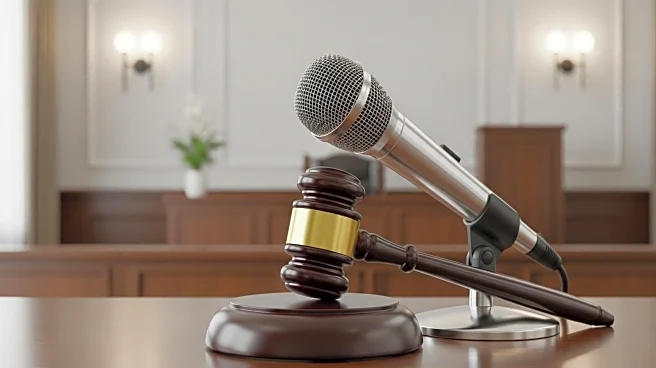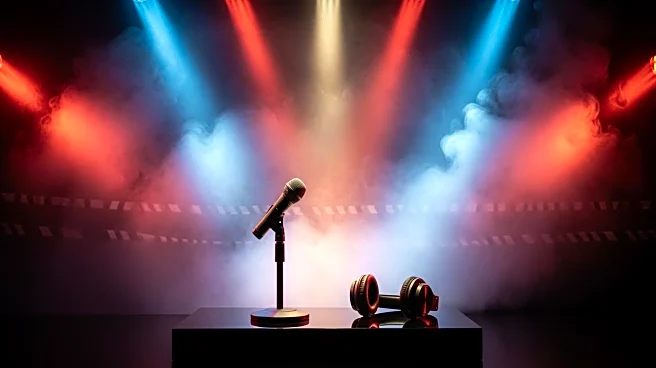What's Happening?
A judge has dismissed Drake's defamation lawsuit against Universal Music Group (UMG), which he filed in January. The lawsuit was in response to UMG's distribution and promotion of Kendrick Lamar's diss track 'Not Like Us,' which became a hit during a rap battle between the two artists. The track included accusations against Drake, such as being a pedophile. Judge Jeannette Vargas ruled that the insults in the diss track were not meant to be taken as objective facts but rather as opinions within the context of the rap battle. The judge noted that the language used in the track was hyperbolic and figurative, typical of rap battles, and that both artists employed similar tones in their exchanges.
Why It's Important?
The dismissal of Drake's lawsuit underscores the legal protections around artistic expression, particularly in the context of rap battles where hyperbolic language is common. This ruling may set a precedent for how courts view defamation claims related to artistic works, emphasizing the distinction between opinion and fact in creative contexts. For the music industry, this decision reinforces the freedom artists have in expressing themselves without fear of legal repercussions for their creative content. Universal Music Group's victory in court allows them to continue promoting Kendrick Lamar's work without legal constraints, potentially impacting the dynamics of artist-label relationships and the handling of controversial content.
What's Next?
Drake plans to appeal the court's decision, indicating that the legal battle may continue. The appeal process could further clarify the boundaries of defamation in artistic expression, particularly in music. As the case progresses, it may attract attention from other artists and labels, potentially influencing how diss tracks and similar content are produced and distributed. The outcome of the appeal could have implications for the music industry, affecting how artists approach controversial themes in their work and how labels manage such content.
Beyond the Headlines
The case highlights the cultural significance of rap battles as a form of artistic expression, where exaggerated language is often used to entertain and provoke thought rather than convey factual information. It also raises questions about the balance between creative freedom and the potential for harm through public accusations, even if made in jest. The legal discourse surrounding this case may influence future discussions on the ethical responsibilities of artists and the role of record labels in moderating content.









